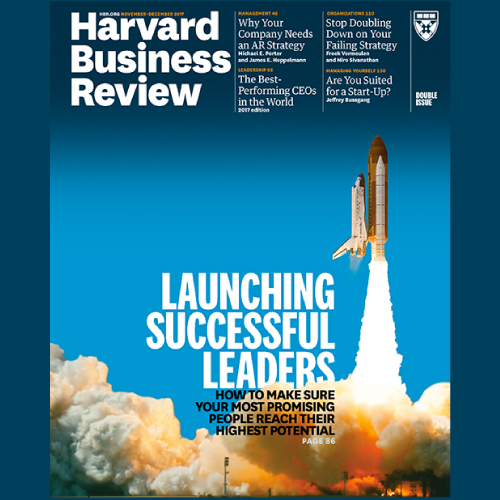The Definitive Guide to Recruiting
in Good Times and Bad
Few companies are thinking about hiring right now, but that’s a mistake. If history is any guide, staffing will become a front-burner issue once the economic upheaval eases. Even now, companies are running into staffing problems in emerging markets, and many will have to find talented replacements for baby-boom retirees. Will they be able to meet their needs?
Not likely, say Fernández-Aráoz of Egon Zehnder and Harvard Business School professors Groysberg and Nohria. Their research, conducted with scores of CEOs, HR executives, and recruiters, found current hiring practices to be haphazard at best and inept at worst.
And no wonder. Ignorant of their staffing needs, most companies treat hiring top-level executives as an emergency. That leaves them little choice. One study found that nearly a quarter of the time, the executive selected was the only candidate considered. Far too few companies conduct reference checks; far too many rely on gut reactions when judging qualifications and cultural fit. Hardly anyone considers whether candidates will be good team players. And, shockingly, only half of the top managers recruited by the companies studied were interviewed by anyone in the C-suite. The result: About a third of promising new hires depart within three years of being recruited.
As a remedy, the authors offer their best thinking about state-of-the-art hiring practices for the top levels of the organization. Their recommendations cover the entire hiring cycle in seven steps: anticipating the need for new hires, specifying the job, developing a pool of candidates, assessing the candidates, closing the deal, integrating the newcomer, and reviewing hire-process effectiveness. Whatever the future brings, firms that follow these practices successfully will have a distinct advantage over their shortsighted competitors.
(...)
More articles

21st-Century Talent SpottingHow can a person who seems so qualified for a position fail miserably in it? How can someone who clearly lacks relevant skills and experience succeed? The answer is potential, the ability to adapt and grow into increasingly complex roles and environments.
How to Find a (Great) Job During a DownturnBy using the framework and decision-support tool provided in this article you can drastically increase your chances of finding a great job, even in a downturn.

Leadership Lessons from Great Family BusinessesBy analyzing 50 leading family firms the authors discovered that the most successful of these companies do four things well.

Turning Potential into SuccessCompanies must take a more scientific approach to turning their raw talent into leaders by mapping people’s potential to see how far they can go, and providing the right coaching and development opportunities.

The High Cost of Poor Succession PlanningLarge firms should pay adequate attention to their top- level leadership pipelines and succession processes, avoiding massive value destruction for companies and investment portfolios. This article shows you how.

Why I Like People with Unconventional ResumésWhy I like job candidates who have followed non-traditional career paths.
The Right Way to Check a ReferenceGreat reference checking is the most important way to avoid major hiring mistakes.
Hiring and Managing in Turbulent TimesTo thrive in turbulent times, executives and organizations should think of Janus, the Roman god of beginnings and endings.
Keep Employees from Leaving by Emphasizing TeamworkIn order to truly capture the benefits of our entrepreneurial society, we must switch our focus from the individual to the team.
Why Family Firms in East Asia Struggle with SuccessionAsian family businesses urgently need to carefully manage their governance, talent development, and leadership transitions.
6 Traits of Strong Family BusinessesTo thrive across generations, family businesses need to master six family gravity dimensions.
Now Is an Unprecedented Opportunity to Hire Great TalentVisionary leaders can capture now an unprecedented opportunity to hire great talent.
To Grow as a Leader, Seek More Complex AssignmentsThe most successful leaders are the ones who continue to learn and grow, through assignments that involve increasing complexity.
The Key to Career Growth - Surround Yourself with People Who Will Push YouPeople who will push us in unexpected ways are the key to career growth.

From Curious to CompetentExecutives with extraordinary curiosity are usually able, with the right development, to advance to C-level roles.
Developing the Next Generation of Leaders in Your Family BusinessCarefully identifying and properly developing the next generation of leaders is by far the most consequential decision for any family business founder, owner, or leader.

How to Look for Emotional Intelligence on Your TeamHow do we assess emotional intelligence in working adults?
How to Make a Team of Stars WorkSix critical dimensions determine the effectiveness of leadership teams confronting different challenges.

How to Hang On to Your High PotentialsThis article describes emerging best practices in executing high-potential programs, including the latest thinking on how to nominate and assess participants, design effective job rotations and stretch assignments, provide thoughtful rewards and incentives, and communicate about the program with the rest of the organization.
The Secrets of Strong Family BusinessesIn this HR webinar Claudio discusses what family businesses must do to remain healthy and viable over the long term, providing examples and case studies from across the globe as well as actionable recommendations to increase your family business’s chances of long-term success.